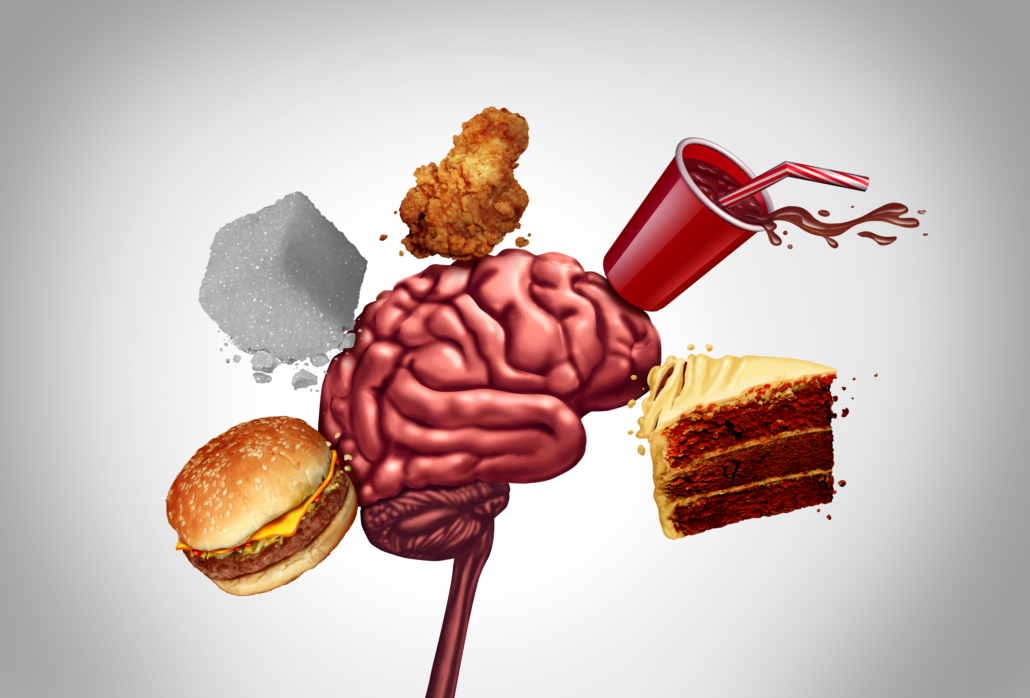We include products in articles we think are useful for our readers. If you buy products or services through links on our website, we may earn a small commission.
The Truth About Grains and Inflammation
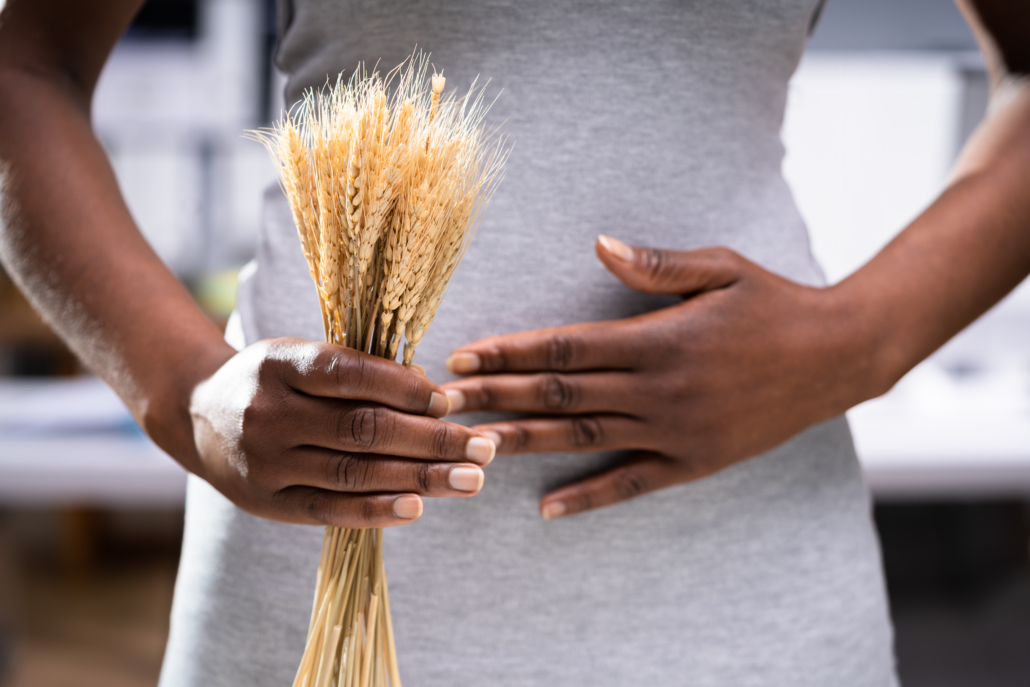
Table of Contents
Numerous studies link consuming grains to inflammation. The most direct links focus on refined grains like wheat flour. But whole grains can also contribute to inflammation through various pathways.
Some of the ways that grains contribute to inflammation include:
- Excessive carbohydrate consumption
- Lectin damage
- Mycotoxins from molds
- Pesticides, including glyphosate
- ATI’s – Amylase Trypsin Inhibitors
In this article, we’ll explore each of these science-backed links between grain and inflammation.
What is inflammation?
Inflammation is the body’s natural way of fighting infection, healing, injuries, and warding off toxic substances.
When it’s working correctly, inflammation lasts for a few hours to a few days. But when you are chronically exposed to inflammatory substances and conditions, it can linger for days and even years, damaging healthy tissues and organs and ultimately leading to numerous diseases.
Modern lifestyle factors like stress, high-carb diets, exposure to plant toxins like gluten and lectins, and long-term medication use are key factors in chronic inflammation.
The WHO (World Health Organization) identifies diseases related to chronic inflammation as the most significant cause of death worldwide. These inflammatory diseases include:
- Stroke
- respiratory diseases
- heart disorders
- Cancer
- Obesity
- Diabetes
- neurological disorders
Chronic inflammatory diseases are forecast to increase dramatically over the coming decades.
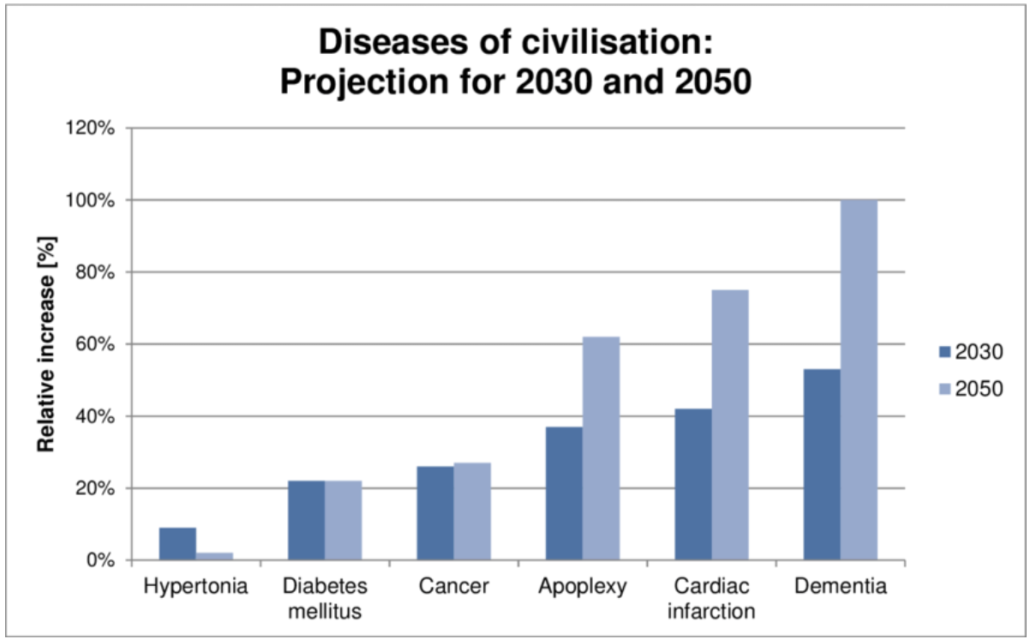
Source: Philipp Jordan
We know that our genes and physiology are nearly identical to those of our hunter-gatherer ancestors. Our bodies are designed to recover from inflammation when nourished with paleolithic foods–namely fatty meats.
Nowadays, our genes operate in an environment that is completely different from the one they are adapted for. We’re stressed, anxious, we don’t move, and we get most of our calories from inflammatory grains and toxic vegetable oils.
High Carbs and Inflammation
Numerous studies show that high carbohydrate diets promote chronic inflammation. The inflammatory effects of high-carb diets are especially pronounced when compared to low-carb high-fat diets.
All grains, whether whole, cracked, rolled, or refined, are extremely high in carbohydrates.
In fact, most grain flours are at least 80% carbohydrates. That’s a hefty 80 grams of carbs per 100-gram serving–the equivalent of two cans of soda.
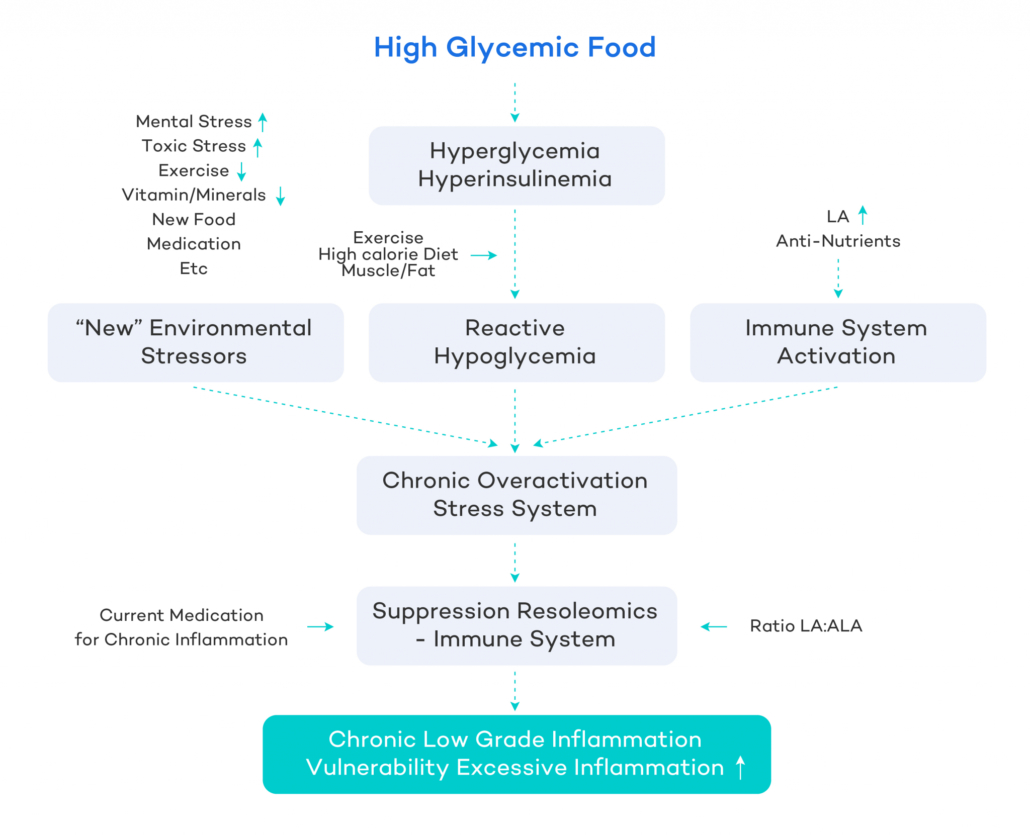
Decades of research by Dr. David Perlmutter, author of Grain Brain, shows that excess carbohydrates and gluten from grains cause chronic inflammation in the brain, leading to anxiety, depression, and Alzheimer’s disease.
Grains, Glycation, and Inflammation
One of the main ways that grains contribute to chronic inflammation is through the process of glycation.
Glycation takes place when sugar molecules bind to proteins, fats, RNA, and DNA.
Carb binding creates AGEs–toxic compounds that have been shown to stoke inflammation and oxidative stress.

Over time, a grain-based high-carb diet leads to the accumulation of toxic AGEs in various tissues and contributes to chronic diseases.
Chronic inflammatory diseases associated with glycation include
- Impaired immune function
- Alzheimer’s disease
- Kidney failure
- Complications from diabetes
- Eye damage
- PCOS
- Endometriosis
- High blood pressure
- heart disease
- Cancer metastasis and resistance to chemotherapy
Gluten
Gluten is the protein in many grains that makes grain products like bread and pasta chewy and elastic.
Most gluten intolerance is attributed to a genetic condition known as celiac disease that entails intestinal inflammation and damage.
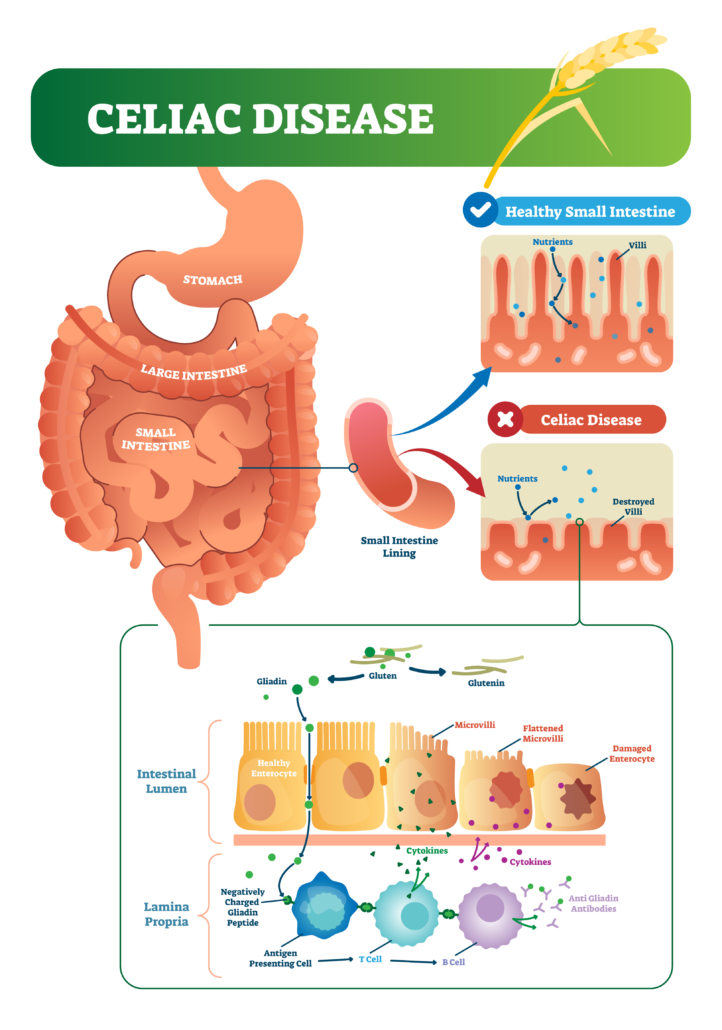
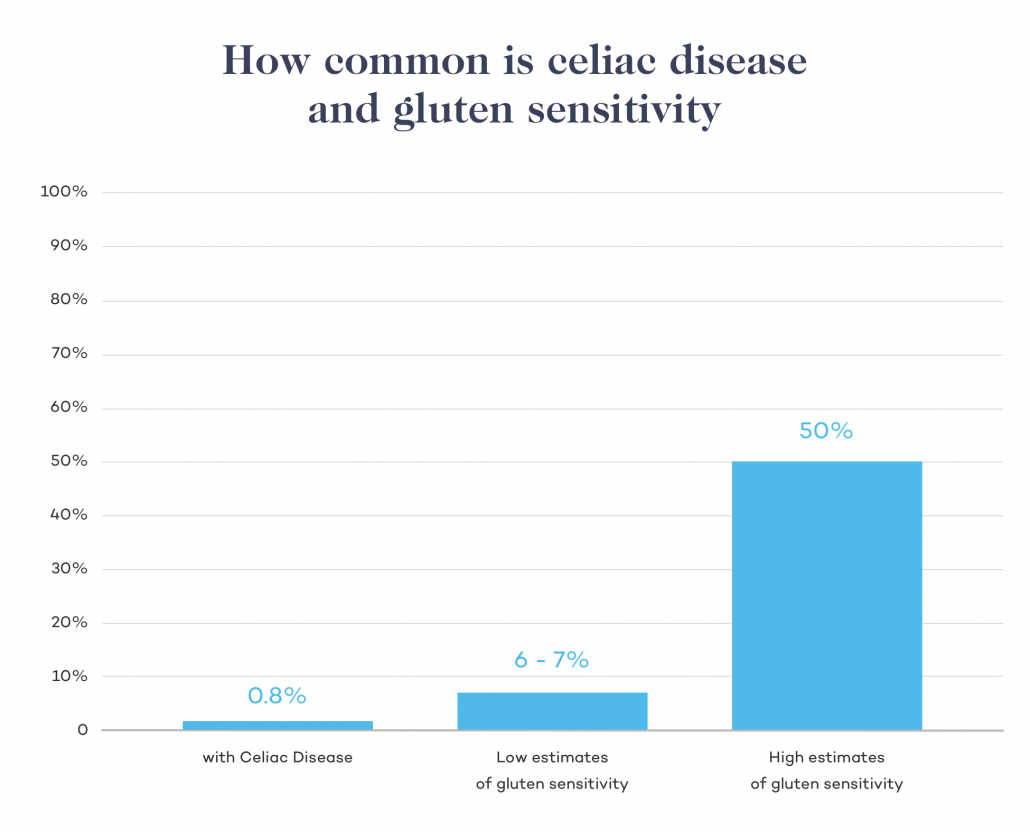
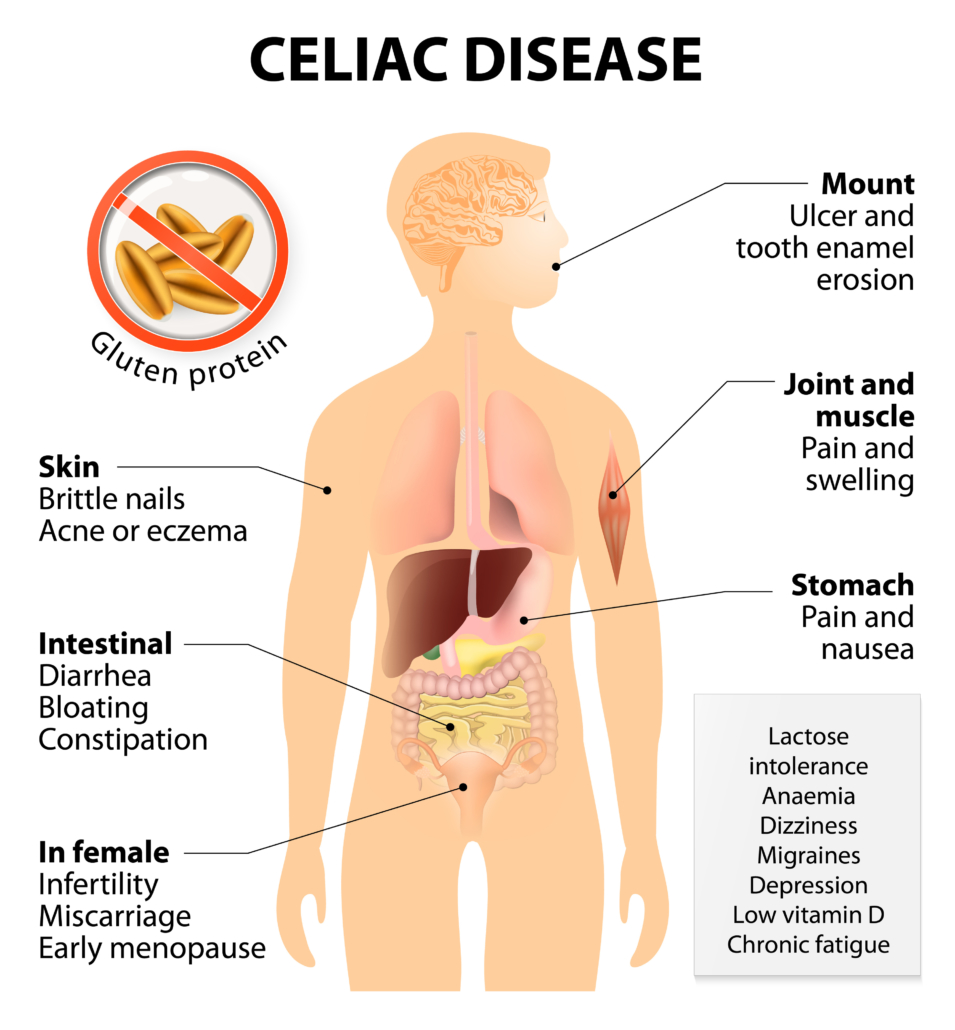
However, research tells us that gluten can cause inflammation in people who do not have celiac disease. Studies identify the naturally occurring pesticide (plant toxin) amylase/trypsin inhibitors (ATIs) in grains as an inflammation activator for both celiac and non-celiac patients.
Inflammation from gluten is traced to a protein called gliadin. Your body responds to gliadin as a threat. In response, your immune system releases inflammatory cytokines that inflame your intestinal lining.
Your gut is lined by a protective layer of a microscopic hair-like structure called the intestinal villi. Inflammatory cytokines cause the villi to become flattened and compromised.
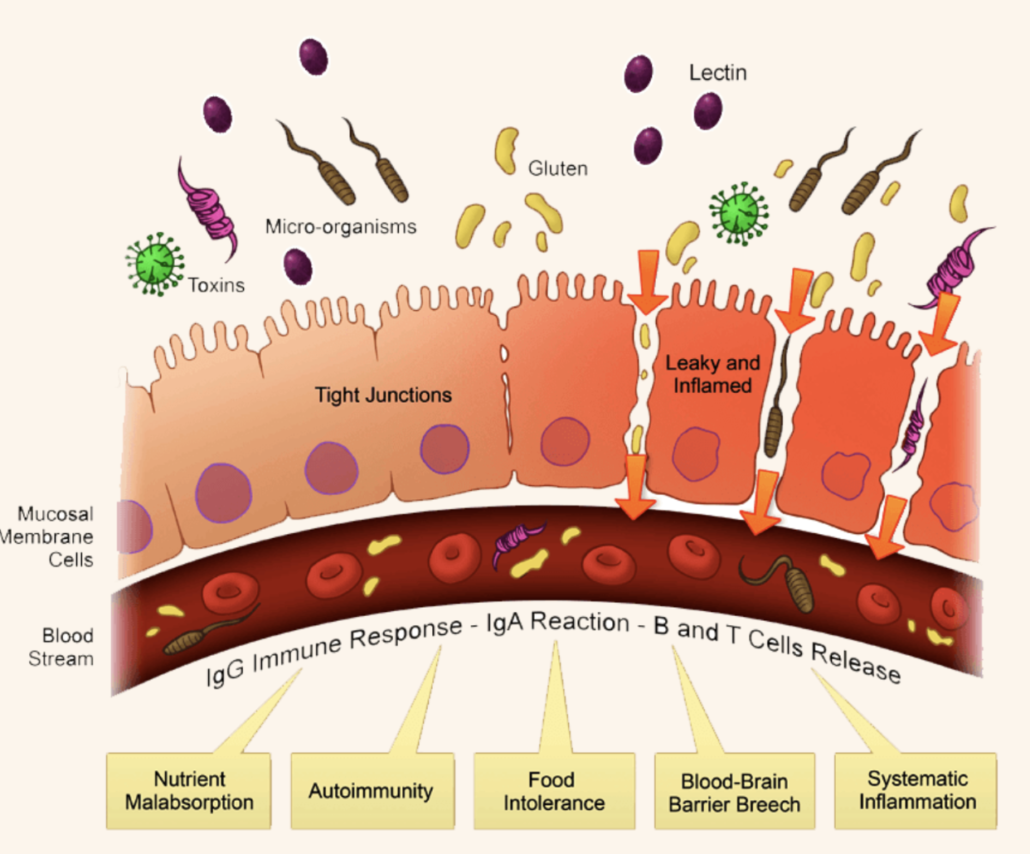
Over time this process can result in intestinal permeability that allows pathogens into the bloodstream, where they become deposited all around the body, leading to further systemic inflammation.
Studies have found that 15 hours after consuming glutenous grains, gliadin can enter the bloodstream spreading antigenic sites through the body.
Eliminating grains containing gluten has been shown to reduce inflammation-related symptoms of arthritis, even for patients for whom traditional drug therapies were ineffective.
Gluten is most often associated with wheat products. But numerous other grains contain enough gluten to trigger a celiac response, including:
- Spelt
- Kamut
- Barley
- Rye
- Oats
Regularly consuming any of these grains may perpetuate a cycle of gluten exposure that can lead to chronic inflammation.
Below you can watch Dr. Osborne explain why a grain-free diet might be right for you.
Pesticide Toxicity from Glyphosate
Glyphosate is a pesticide commonly used on grain, and it’s considered “probably carcinogenic” by the World Health Organization.
When glyphosate enters the intestines, it profoundly stimulates zonulin, a highly inflammatory protein.
The presence of zonulin is seen as the main biomarker (tell-tale sign) of impaired gut barrier function, and various autoimmune, neurodegenerative, and tumoral diseases.
Once the gut barrier is compromised, zonulin can enter the bloodstream and spread inflammation to other parts of the body. In this way, glutenous grains and the glyphosate used to grow them can be a dual factor in intestinal and systemic inflammation.
Glyphosate is used on ⅓ of the wheat acres in America and on almost all conventionally-grown oats.
One recent study of children’s oat products found glyphosate in all 28 samples tested, with 26 samples containing more than the Environmental Working Group allowable PPM.
The Canadian Food Inspection Agency the following glyphosate concentrations in various grain and bean-based foods.
| Product | Percent of Samples with Glyphosate |
| Pizza | 90 |
| Wheat flour | 88 |
| Crackers | 84 |
| Fresh pasta | 84 |
| Cooked pasta | 83 |
| Dried pasta | 80 |
| Oats | 75 |
| Chickpea flour | 70 |
| Lentils | 67 |
Source: EWG, and Canadian Broadcasting Corporation.
Interestingly, incidences of celiac disease track very closely with the use of glyphosate on wheat.
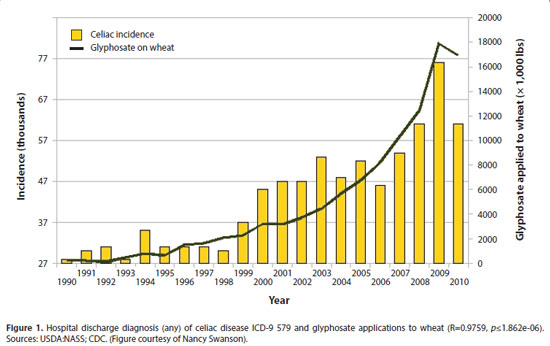
Grains Promote Bacterial Overgrowth and Intestinal Permeability
Recent studies show that high-carb diets promote the growth of harmful proteobacteria in the gut while simultaneously reducing beneficial bacteroidetes.
Bacteriodetes defend the gut against endotoxins while reinforcing the gut membrane.
This dual front attack weakens the gut lining, contributing to intestinal permeability, AKA leaky gut.
As we’ve seen above, leaky gut allows antinutrients from grains and food particles to enter the bloodstream and travel to other parts of the body, leading to an inflammatory immune response.
Studies have shown that nearly all grains are considered FODMAPS (fermentable oligosaccharides, disaccharides, monosaccharides, and polyols) foods that should be eliminated when suffering from SIBO or other forms of intestinal overgrowth. Sibo is associated with inflammation of the gut mucosal lining.
Lectins
Most grains contain significant levels of an antinutrient called lectins.
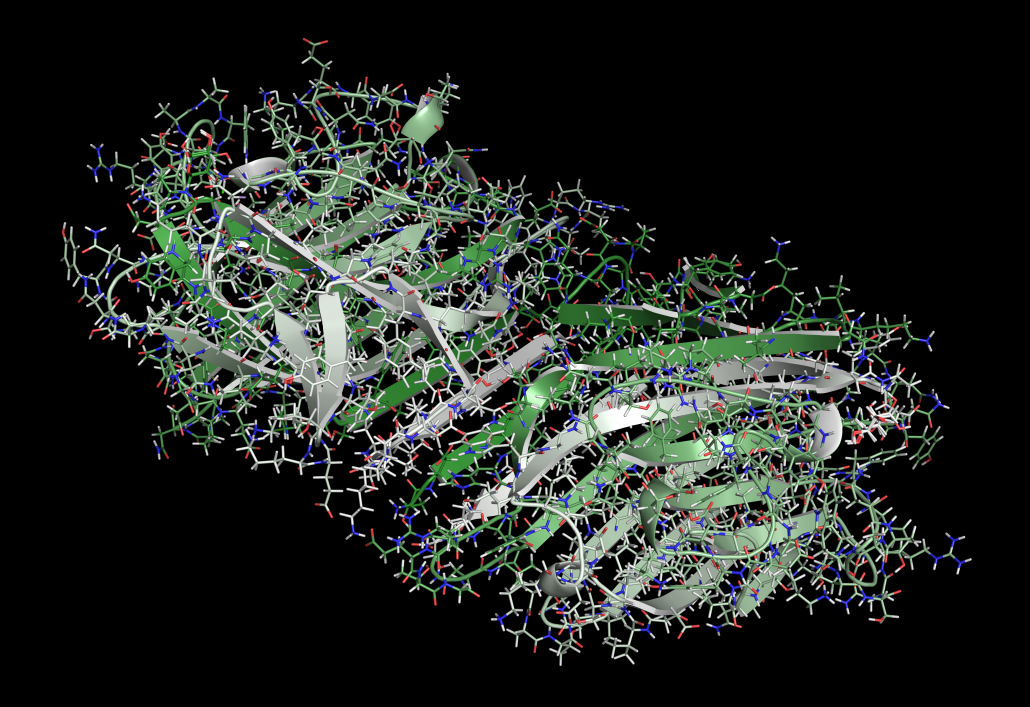
Lectins are sticky proteins that bind to carbohydrates. The body responds to lectins in the gut as a toxic substance–by now we should all know what that means, yep, inflammation and intestinal permeability!
Lectins are another substance that has been found to cross into the blood and bind to various tissues throughout the body, causing widespread inflammation.
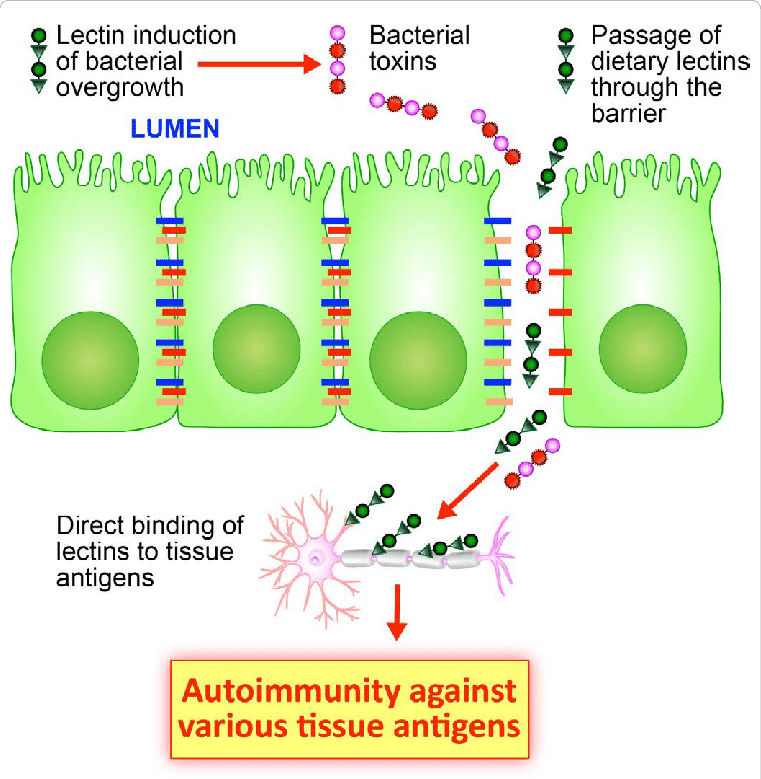
Source: Journal of Clinical & Cellular Immunology
A 2017 study looking at the effects of lectin/agglutinin on various body tissues found a significant elevation of antibodies in most tissues in patients with lectin/ agglutinin family protein.
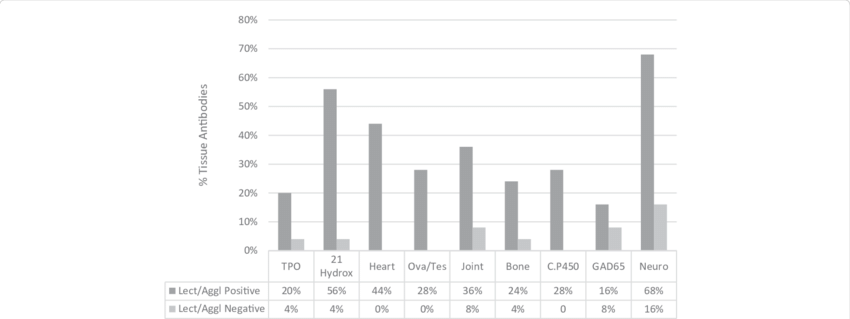
Another 2017 studie detailed the roles that play in various inflammatory diseases.

Researchers concluded:
- Plant-derived dietary lectins are involved in the pathogenesis of several inflammatory diseases, including inflammatory bowel disease, diabetes, rheumatoid arthritis, and celiac disease
- Plant lectins can activate the NLRP3 inflammasome and promote the secretion of proinflammatory cytokines, which may contribute to food-associated chronic inflammation and inflammatory diseases.
Lectins and Leptin
Lectins have been identified as the culprit behind a hormonal syndrome called leptin resistance.
Leptin is a hormone that suppresses appetite and increases energy use by the body.
When grain lectins inhibit leptin signaling, you can feel constantly hungry, you eat more calories than you need, and you crave carbs.
This chain reaction can contribute to diseases, including obesity, cardiovascular disease, and diabetes.
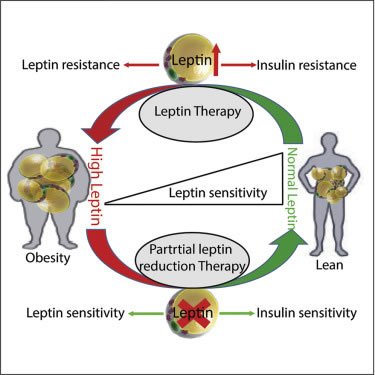
Source: University of Texas
Mycotoxins in Grains
Mycotoxins are poisonous compounds produced by various fungi found in contaminated grains.

The prevalence of mycotoxins in grains is increasing with global climate change as storage and processing practices can’t adapt to warmer, wetter environments.
The body responds to mycotoxins as a threat by releasing inflammatory cytokines. These substances bind with cell receptors that can lead to blocked arteries, various cancers, and neurological disorders.
One study on grains grown in zimbabwe found that mycotoxins contaminated 13% to 25% of small grains, and 50% of maize.
Recent studies show that mycotoxin is a widespread and growing problem, prompting researchers to declare that mycotoxins are an underappreciated cause of disease.
Grains and Inflammation: The Bottom Line
Do grains cause inflammation? The short answer is yes.
Consuming grains has been linked to inflammation in both direct and indirect ways.
Grains are high in carbs and lectins and are often contaminated with harmful fungal compounds and chemical pesticides.
Each of these factors damages the gut lining, causing local inflammation and intestinal permeability.
Once the intestinal barrier is breached, these inflammatory substances can travel through the bloodstream to various other bodily tissues and organs, promoting widespread inflammation.
The good news is that there is no nutritional reason to eat grains. That is to say, there are no nutrients in grains that you can’t get in safer, greater abundance, and in more bioavailable forms from low-carb nutrient-dense whole foods.














